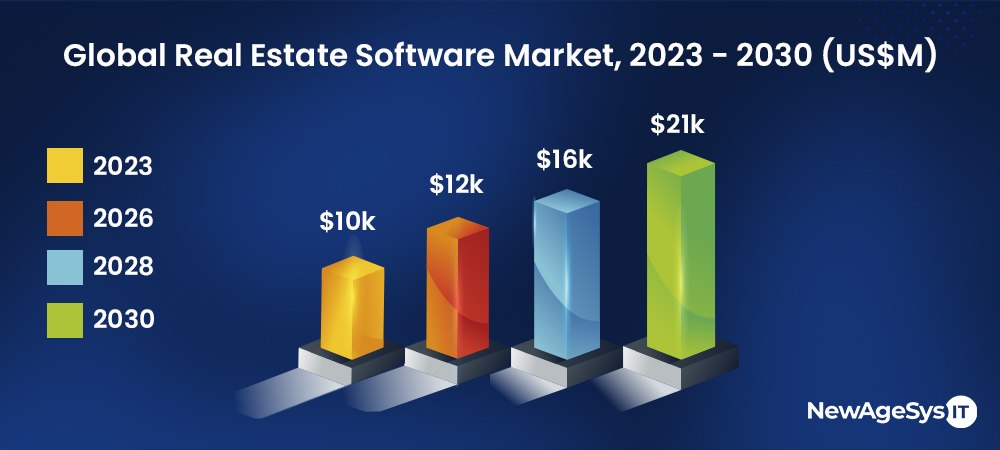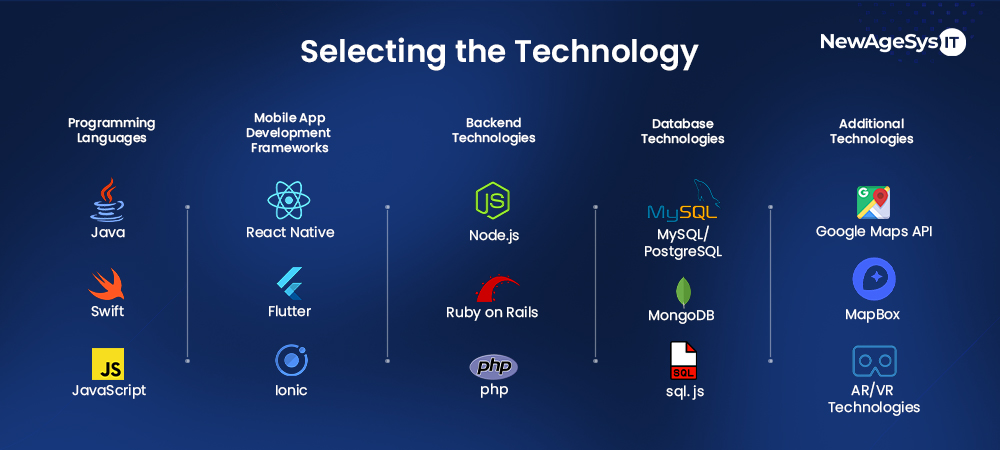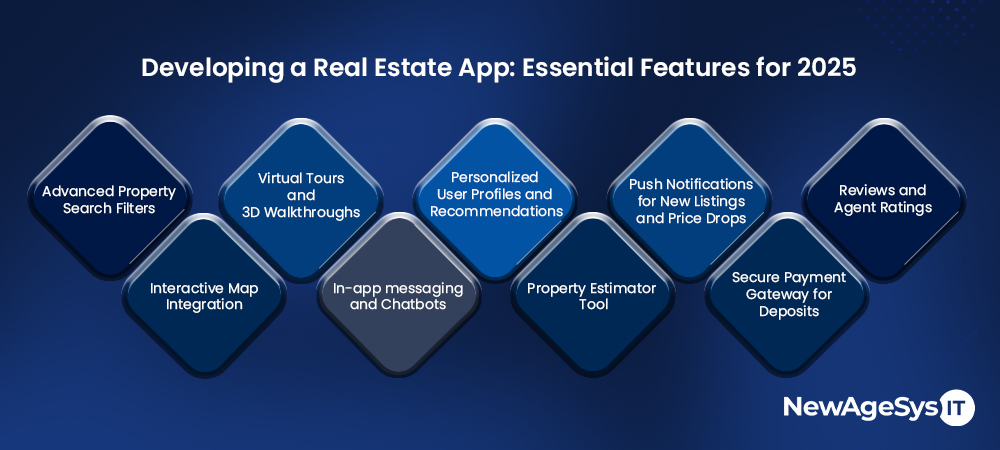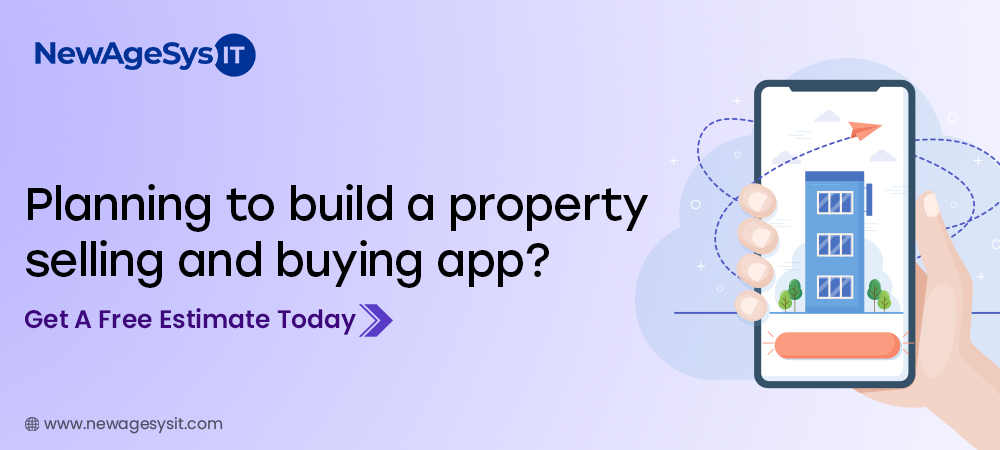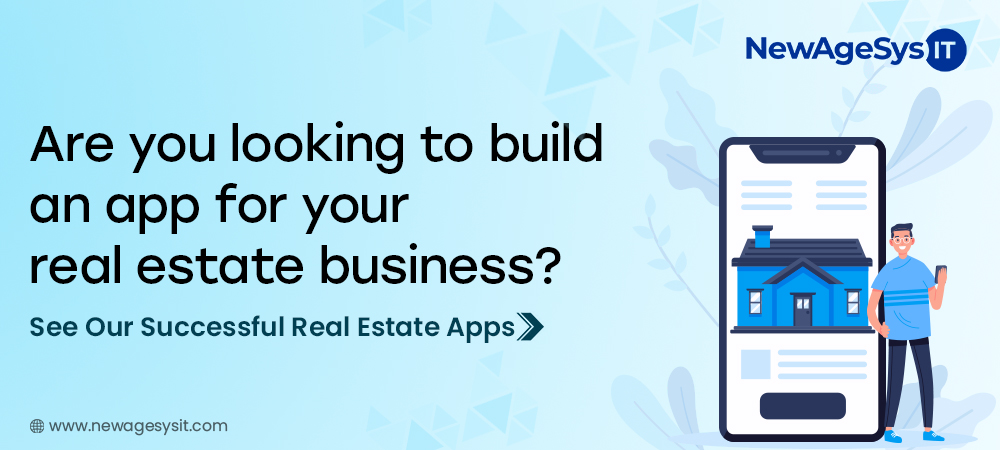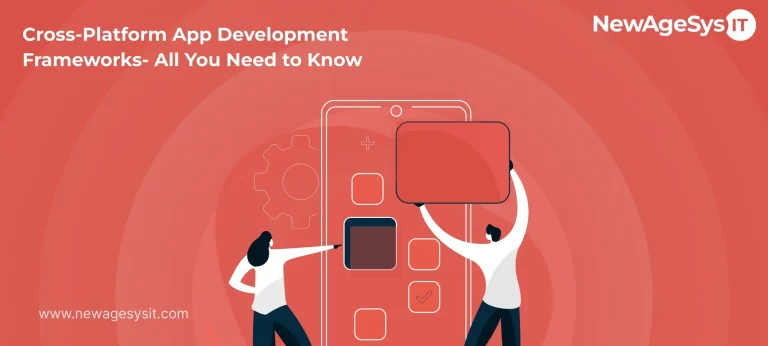Mobile applications are the central pivot for the prevailing digital revolution in the property industry. Real estate applications have made it convenient for buyers, sellers, and brokers to integrate through just some taps, having become almost integral tools since 97% of purchasers now start their search online.
By 2026, the real estate app industry is projected to reach $7.5 billion, with big guns like Zillow and others spearheading innovation in the sector. But then again, how are these applications generating revenues in this hyper-competitive market, and what are these key performance indicators to success?
This is an introductory guide to what it takes to develop a truly unique yet profitable real estate app, from monetization strategies to user experience design. Let’s examine how these applications change the real estate industry going forward!
App Development for Real Estate
Mobile real estate applications are now very important for the broker, seller, or buyer in the modern world that has been entirely swept by smartphones and tablets. They impel a smoother transaction in buying and selling processes, facilitate property searching, and enhance communication. This growing demand for tech-savvy real estate applications challenges companies to meet new and changing consumer needs within the industry.
These applications are tailored to the unique needs of real estate businesses, enabling seamless operation across various areas of the industry, even while on the go. They are changing the concept of how the real estate business operates; they allow service providers to employ efficient tools to assist customers in researching property. To get this app built, you can seek support from NewAgeSysIT, as we offer mobile app development services to clients across wide industries.
Among the most widely used categories of real estate apps are:
- Apps for property listings: For rental and sales assessments.
- Apps for property management: To oversee rental properties and tenants.
- Apps for real estate investing: Presenting chances for investment.
- Apps for online property booking: Making reservations easier.
Apps for real estate are influencing the direction of the sector by facilitating quicker, more transparent, and easier transactions. Be it a property listing and management app, or a property buying and selling app, our custom mobile app development services will help you get the app tailored to your needs. You can get a free estimate by filling out our form.
How to Create an App for Real Estate?
We at NewAgeSysIT, one of the leading mobile app development agencies in the USA follow best practices for developing an app. Stakeholders, UX designers, and developers must work together to create top-notch real estate software. Understanding the intricacies of the real estate market and creating specialized app and web development solutions are essential to providing a flawless experience for buyers, sellers, and real estate professionals. It is a comprehensive how-to for creating a real estate app, covering everything from preliminary investigation to release.
1. Analysis of the Market
Analyze the real estate market in-depth before beginning any development. This stage helps you polish your idea and makes sure your program successfully meets user needs. Important research topics include:
- Real Estate Market Trends: Recognize both established and new trends.
- Competitor Strategies: Recognize the things that profitable competitors are doing well.
- Regulatory Compliance: Adhere to current real estate regulations and guidelines.
- Technological Developments: Examine cutting-edge instruments and integrations.
- Statistical Insights: Examine market information to find openings.
- ROI Projections: Evaluate your app’s potential for profit.
Knowing these elements will help you match the features of your app to the particular requirements of the real estate market, guaranteeing a unique solution. You can go to the next phase if your research is finished. Building an app that succeeds in a dynamic market requires incorporating these insights into your development process. Let’s examine the next stages involved in developing a profitable real estate app!
2. Selecting the Proper Features for Your App for Real Estate
A thorough understanding of technology and the real estate sector is necessary to develop a successful real estate app. Making thoughtful feature selections guarantees that your software will satisfy user demands and stand out in the crowded market. This concise guide will assist you in making a decision:
Specify the objectives and purpose of your app.
Clearly state the goals of your application. Essential features can be prioritized and matched with user expectations with the aid of a well-defined concept.
Include Essential Features
To meet basic user needs, add basic features like property listings, sophisticated search filters, contact forms, high-quality photos, and stored favorites.
When you collaborate with us, our mobile app development services will help you get a feature-rich app customized to your needs. You can see our successful real estate apps here.
3. Include Features That Stand Out
To set your app apart from the competition, include value-adding features like push notifications, real-time alerts, user reviews and ratings, virtual property tours, and mortgage calculators.
4. Make plans for updates and scalability.
As market demands change, plan for future expansion by incorporating updates and new features into your app. Scalability guarantees that your program will continue to be useful in the future. As the top mobile app development company in New Jersey, we will work with you from the start to launch. We will give the post-launch support. Our experts monitor and make necessary updates and maintenance to make your app properly function.
5. Choosing the Technology Stack
The next crucial step after deciding on an app concept is selecting the appropriate technology. Consider incorporating third-party APIs to access external databases to avoid the hassle of maintaining dedicated servers. Application Programming Interfaces, or APIs, make it easier for systems to communicate with one another and allow your app to retrieve data with ease.
Working with expert real estate app developers guarantees you select the best development languages and tools while tackling issues unique to the sector. A strong, effective, and future-ready real estate application is built on the foundation of the appropriate technology stack.
Developing a Real Estate App: Must-Have Features for 2025
Advanced Filters for Property Searches
Advanced search filters are crucial in 2025 to satisfy the changing demands of real estate app consumers. Buyers look for particular properties, not simply any properties. Users now want choices to narrow their searches by neighborhoods, property kinds, number of rooms, school districts, commute times, and amenities like swimming pools, gyms, or pet-friendly parks, even though basic criteria like location and price are still crucial.
Use predictive search and intelligent suggestions to further improve the user experience. For example, if someone is looking for a three-bedroom house in a particular city, your app might suggest homes in the surrounding suburbs or postings that are similar to what they are looking for. The more customized and user-friendly the search function, the more useful your software will be. Our custom mobile app development services will help you fix this. Get a free consultation from our experts now!
Integration of Interactive Maps
Since location is crucial in real estate, integrating interactive maps is essential for 2025. Your app can make it easy for users to visually explore the locations of properties by integrating tools like Google Maps.
Nearby facilities including schools, hospitals, supermarkets, and public transportation can be highlighted on interactive maps. Going a step further, include neighborhood heatmaps that show important information such as average income, crime rates, or lifestyle changes.
Maps can also display listings for adjacent properties, enabling users to look at several possibilities in the same area. This feature makes your app the preferred choice for real estate needs because it saves time and improves the browsing experience.
3D Walkthroughs and Virtual Tours
For good reason, virtual tours and 3D walkthroughs are already standard features in real estate apps. Busy buyers nowadays don’t have time to travel across town to look at several properties. They would rather virtually tour homes before making an appointment for a face-to-face visit.
Compared to static photos, 3D virtual tours provide consumers with a far better feeling of space and layout by allowing them to explore a property as if they were physically there. Use interactive elements such as clickable locations to examine appliances or special space information. Provide augmented reality (AR) features so that users can see future improvements or furniture arrangements during their virtual tours. These captivating encounters elevate your app.
Chatbots and in-app messages
A deal can be made or lost based on how well buyers and agents communicate. By 2025, an integrated communications system will be required rather than optional. Customers anticipate the ease of communicating with agents through the app rather than having to use phone calls or emails.
Improve this functionality by adding a chatbot driven by AI to respond instantly to frequently asked questions. Most questions may be handled effectively by chatbots, which can handle everything from organizing viewings and verifying property availability to supplying financing information. It makes your app a useful tool for both buyers and agents by streamlining the purchasing process and enhancing the user experience.
As we offer custom mobile app development services, we have built chatbots for various businesses. Our clients are happy to share their success with us. Hear it straight from our clients.
Individualized User Profiles and Suggestions
In 2025, personalization is expected rather than merely a luxury. Your real estate app can be customized to meet the demands of each user by integrating individualized user profiles that let users keep their favorite listings, searches, and preferences.
Make recommendations based on data to go one step further. For example, the app should automatically recommend comparable postings to a user who often looks for condos in a particular location. In addition to keeping users interested, this degree of customization builds loyalty and trust, establishing your app as a useful resource for their real estate endeavors.
Tools for Property Estimators
One of the most important financial decisions a person can make is purchasing a home. Integrate affordability and mortgage calculators to give people the information they need to make wise decisions.
While an affordability calculator establishes the kinds of houses that users may afford based on income, costs, and credit score, a mortgage calculator assists users in estimating monthly payments, interest rates, and possible down payments.
These technologies increase the app’s usefulness as a one-stop shop for all real estate needs while transforming it into a comprehensive real estate resource that gives users actionable insights.
Push Alerts for Price Changes and New Listings
Timing is crucial in the quick-paced real estate market. By promptly alerting users to price reductions on their saved favorites or new property listings, push notifications keep users informed. Customers feel more connected to the market and have a competitive advantage because of these real-time updates, which also improve the whole app experience.
Safe Deposit Payment Gateway
Security is crucial when it comes to financial operations. A strong and safe payment gateway should be incorporated into your real estate app so that purchasers can pay application fees or down payments right within the app. Additionally, sellers can easily accept payments.
The gateway must adhere to industry security requirements in order to maintain confidence and protect private user data from online attacks. Having a safe way to pay expedites transactions and gives your app more credibility. If you are looking for mobile app development agencies to build your real estate app, reach out to us now. We are ready to show you a free demo of how your real estate works.
Evaluations and Agent Scores
In the current real estate market, transparency is essential. Buyers appreciate hearing about other people’s experiences with real estate, brokers, or landlords.
Users are empowered to share feedback through a reviews and ratings function, which aids in others’ decision-making. In the end, this strategy improves the reputation of your app and customer pleasure by promoting professionalism among real estate agents and building confidence and credibility.
How NewAgeSysIT Can Assist You
At NewAgeSysIT, we understand the challenges of standing out in a competitive real estate market, and we’re here to help you bring your vision to life. Being a top iOS and Android mobile app development company, we provide customized solutions to assist you in developing a real estate app that satisfies but also beyond user expectations. Our proficiency in creating dependable, scalable, and secure platforms guarantees that your mobile app will last and provide the features that today’s tech-savvy users want.
Whether you’re planning to develop a real estate app or improve an existing app, NewAgeSysIT will help you with every stage of the development process, from conception to release, enabling you to produce an app that boosts sales, enhances user engagement, and distinguishes your brand in a crowded market.
Get in touch with NewAgeSysIT right now to find out how we can assist you in creating the perfect mobile application for real estate, keeping your company ahead of the curve in the rapidly changing digital market.
Conclusion
Indeed, due to thousands of competitors every year, the real estate market becomes competitive. It is tough to attract customers, but intelligent tactics like offering customized discounts and speeding up the checkout process can help achieve a sustained position in the market. Speaking to millennials, who make up a sizable share of today’s real estate audience, and providing seamless mobile experiences are two of the most important strategies for obtaining a competitive edge.
Users will have higher expectations for real estate apps in 2025 and beyond. Advanced search filters, virtual tours, real-time communication, and personalized suggestions are now necessary for developing an app that is competitive and easy to use.
Developing high-quality real estate software that rivals industry giants like Trulia or Zillow requires both time and investment, particularly when incorporating valuable features and ensuring a smooth user experience. However, this investment is worthwhile, as it can significantly enhance your market visibility and boost user engagement.
Reach out to us today to start building your real estate app. Also, explore our case studies to see how we’ve helped clients like you achieve success with their mobile apps.


